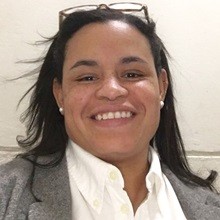Radford alum earns honor as prestigious Pew Scholar

The Pew Charitable Trust named Donita Brady ‘03 a 2016 Pew Scholar in the Biomedical Sciences.
Brady, now Presidential Assistant Professor of Cancer Biology in the University of Pennsylvania’s Perelman School of Medicine, was selected as an “Exceptional Early-Career Scientist.” The Radford alumna will receive four years of flexible funding from the trust to pursue foundational, innovative research.
The Pew Scholars Program in the Biomedical Sciences funds young investigators of outstanding promise in science relevant to the advancement of human health. The Radford graduate is joined in the program by young researchers from prestigious national institutions, such as University of California, San Francisco; the Fred Hutchinson Cancer Research Center and the Scripps Research Institute in diverse fields such as molecular biology, virology, neuroscience and immunology.
From Radford, Brady went on to complete her Ph.D. at UNC and then was a postdoctoral fellow in the Department of Pharmacology and Cancer Biology at the Duke University School of Medicine. She joined Penn last year as its seventh Presidential Professor in Cancer Biology.
“I wouldn't have thought about it unless professors Webster and Burkhardt (Radford professors of chemistry) put the opportunity to do summer research on my radar back then,” said Brady, who now leads a five-person research team that is studying the links between cancer and copper. “I fell in love with research. I wouldn’t be where I am now without them.”
For more on her team’s research, visit their page at the Pew Trust website.
“Their guidance gave me my first glimpse at what scientific research can be,” Brady said. “Radford made a big difference to me.”
At Duke, she was part of a team that discovered that reducing the body’s supply of copper also blocks the growth of certain kinds of cancers, including melanoma, one of the most common and deadly forms of skin cancer, as well as colon, lung and thyroid cancers.
“The chemistry department at Radford was like a family and I think back on it fondly,” said Brady, who also played intercollegiate softball for Radford. “Radford had everything I needed - plenty of individual attention, small class sizes and faculty who helped push me through the many challenges and helped guide me to opportunities.”